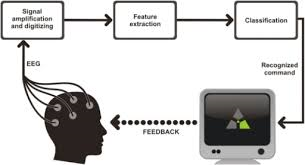Research topics of ALDAPA are the following:

Artificial Intelligence in Health. Physiological computing
This line is focused on the application of artificial intelligence techniques to the diagnosis and prevention of diseases and anomalies derived from the nervous system. Specifically, we are working on the identification of meaningful biomarkers and the development of intelligent systems to detect stress states, early diagnosis and prognosis of Parkinson's disease, diagnosis in the evolution of Alzheimer's disease, prediction of epileptic attacks, among others.

Concerning physiological computing, the group is specialized in recording, analysis and use of physiological signals acquired in a non-invasive way. In addition to the development of as minimally invasive recording systems as possible (wearables), new biomarkers extracted from such physiological information (ECG, EDA, EEG...) are proposed to be used in intelligent systems to diagnose and/or prevent pathologies.
Machine learning. Fair and explainable models
In all the research lines of the group, the objective is to generate fair systems and explainability is a requirement for fairness. In this line, we specifically design and work with machine learning algorithms that can deal with problems in which in addition to an efficient classification an explanation of the classification is required contributing to the fairness of the generated systems. For this purpose, strategies that come from multiple classifier systems or ensembles are used. Research is also carried out in contexts where the number of cases of some of the classes is very unbalanced with respect to the rest (class imbalance problem), which is a drawback for most of the machine learning paradigms.
With regard to fairness we specially emphasize on the gender point of view, introducing methodologies that allow the generation of bias-free systems.

History
Although the lines mentioned above reflect the current activity of the ALDAPA group, the group's background dates back to the 1990s with initial research activity in pattern recognition, optimization and parallel computing. Several supervised and unsupervised classification paradigms - artificial neural networks, neighborhood-based classifiers (kNN), multiple classifiers, clustering techniques, cluster validity index (CVI) analysis - have been applied in various fields: fault detection in electrical networks; Optical Character Recognition (OCR); merchandise distribution optimization (TD-TSPTW, Time Dependent Traveling Salesman, Problem with Time Windows); fraud detection; customer fidelity; computer security; modeling the behavior of users, disabled or not, interacting with digital systems (Web Mining, Sheltered Social Networks, eGovernment, eServices, eTourism); among others. Work has also been done on high performance computing in the context of simulation of physical phenomena (electronic interaction at the molecular level, kinetic Monte Carlo methods, etc.), as well as on federated and parallel computing.

